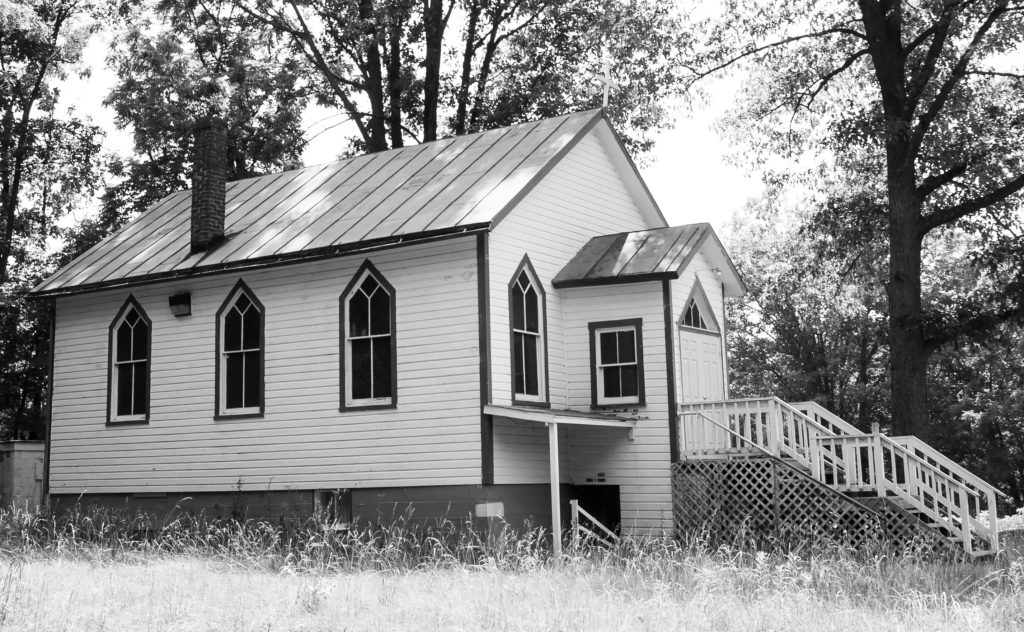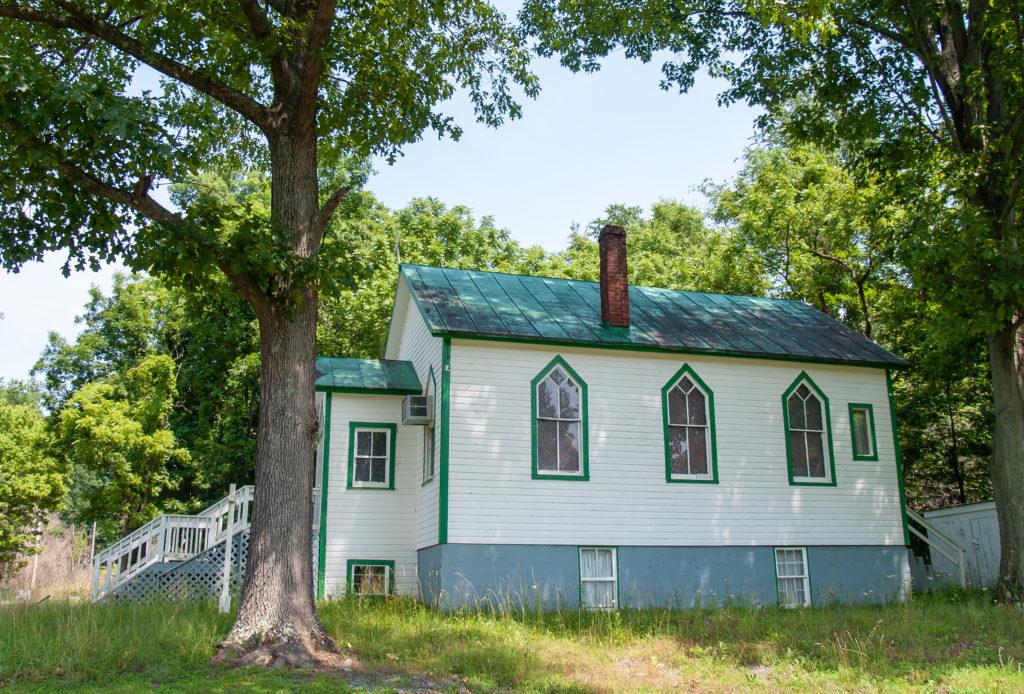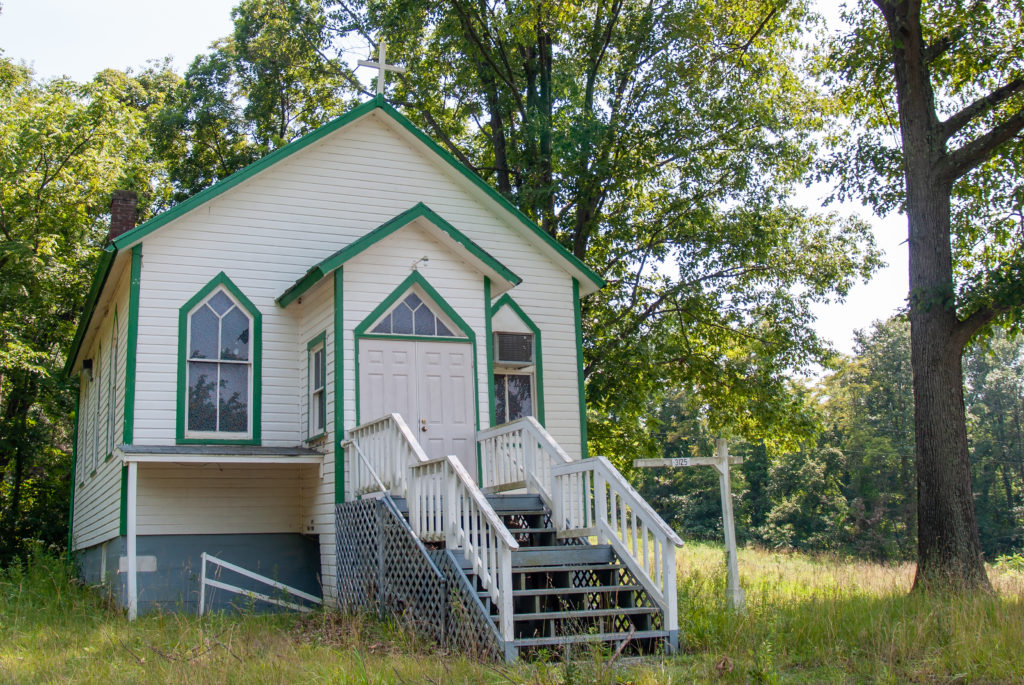
Surrounded by cornfields, this simple country church seems lovely and peaceful. According to Find a Grave, the cemetery associated with this church has 572 memorials. The earliest seem to date from the mid-19th century (the Kerns family). Other early burials in the cemetery include Fletcher, Whitacre, Oates, and Mauzy family members.

According to Carr and Carr (1988),1Carr, Clay B., & Carr, Mildred I. (1988). Historical Sketches of Places of Worship—Winchester and Frederick County Virginia. Winchester Printers, Inc. the church (as a worship body) was organized with the help of noted itinerant evangelist Lorenzo Dow “before the 1840s” (as Dow died in 1834, presumably before then). The Frederick County 250th Anniversary Commission has its founding date as 1832. Lorenzo Dow was an eccentric preacher who traveled and proselytized in England, Ireland, Canada, and the United States (particularly in the South). Dow was an opponent of slavery, going against many major denominations of the time such as the Methodist Episcopal Church.2Brawley, B. G. (1916). Lorenzo Dow. Journal of Negro History, 1(3), 265–275. As Dow wrote in 1840:3Dow, L. (1812). A Journey from Babylon to Jerusalem: Or The Road to Peace and True Happiness: Prefaced with An Essay on the Rights of Man. Haas & Lamb. p.71
As all men are created equal and independant by the God of Nature; slavery must have Moral Evil for its foundation, seeing it violates the Law of Nature, as established by its Author.
Unfortunately, probably few of the original (and later) church members shared Dow’s abolitionist feelings, although more research may turn up new information. Lorenzo Dow and Elder Christy Sine (1789 – 1858) organized the church body that would become Ebenezer Church, and the first building was “brought over the frozen drifts 10 feet deep during the severe winter of 1840 by a team of eight horses several miles from the farm of Ezra Miller.” 4Carr and Carr, 1988, p. 16 The Reverend Sine was also an unconventional religious man; before marriage, he was an itinerant preacher like Dow, and after settling down, fathered 17 children with three wives.5The Rev. Christy Sine. (1996). Hampshire County Historical Society, Fourth Quarter, 1–2.

Land for Ebenezer Church was donated by George Whitacre and his son donated land for the current building, which dates to 1876. The Whitacre and Anderson families donated additional land for the church and cemetery over the years.6Carr & Carr, 1988
An 1890 photograph in the Stewart Bell Jr. Archives at the Handley Library shows about 40 parishioners (men, women, and a lot of children) outside of the church. Little of the church is visible in this photo, aside from wood siding and shuttered windows.7https://handley.pastperfectonline.com/photo/53A1EB5D-F63D-466A-AF7B-108099092384 The church and cemetery received a “generous endowment” from Charles Ray Oates’s estate in 1965, and the current facade and steeple of the church date to a 1969 renovation. 8Carr & Carr, 1988 The church belongs to the Disciples of Christ denomination.


